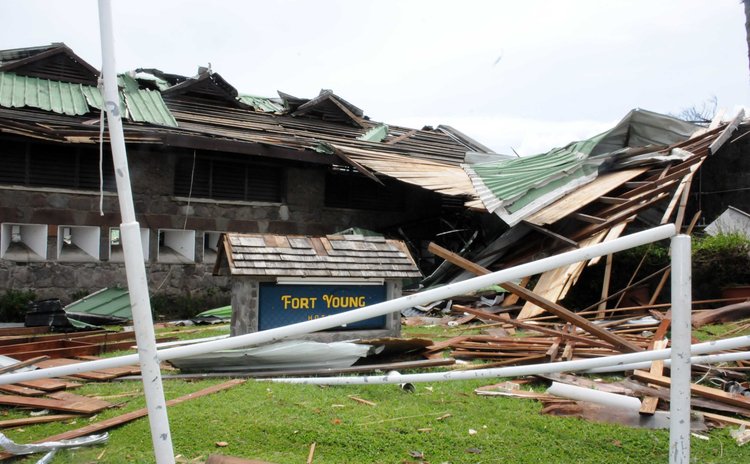Some Suggestions for Improving Disaster Management Capacity in Dominica

By Michael Norris
Dominica is highly vulnerable to storms and other exogenous shocks. In fact, the Commonwealth has rated Dominica as the most vulnerable island in the Caribbean. The island's exposure (the attendant adverse effects) will only be magnified as extreme weather systems become the norm. The passage of Category 5 Hurricane Maria in September 2018 was a most terrifying manifestation of this reality. Accordingly, Dominica has to significantly enhance its capacity to effectively respond to disasters. This brief article provides some suggestions in that regard, focusing on the response after a disaster.
The Disaster Management Office should be upgraded to a fully-fledged agency with legal stature. The agency will have the responsibility for managing the relief response immediate after a disaster. It must be provided with the requisite resources to effectively discharge its mandate, including specialist staff to deal with the coordination of humanitarian and emergency aid, logistics of distribution, procurement, shelter management and training. The agency will be headed by a director assisted by four zonal managers.
The country should be divided into North, South, East and West for the purpose of disaster management. The zonal managers, working in tandem with local government and national security authorities, will ensure that their zones are prepared to adequately respond to disasters. The responsibilities of the managers will include, among others, organizing local units of first responders and persons to help in the clearing of debris, adequate provisioning of shelters, planning of community training in disaster preparedness, the supply logistics (including transportation) in communities/villages within the zones, disseminating public information, identifying the special needs and peculiarities of the communities in the zones (including the topographical features that will have an effect on disaster management), monitoring and evaluating the level of preparedness of each community and reporting findings to the national centre of operations.
Each village should have a warehouse stored with supplies of non-perishable food and materials. Food items with very short shelf life (such as biscuits, cereals and corn meals) can be purchased one-month before or very early in the hurricane season to preserve their freshness.
Storekeepers will be engaged on a part-time basis at the local level to ensure that the warehouses are adequately stocked by bringing to the attention of the respective zonal manager the goods that need to be replenished, identifying food items that are about to expire in three months and keeping records of the inventory. Foods nearing expiration can be distributed to the prison and homes or centres caring for the elderly, homeless, the disabled, youth at-risk and/or sold at discounted prices to small shops in the locality that can make a quick inventory turnover.
The implementation of these suggestions will improve the capacity of the State to respond to natural disasters in a timely and much better organized manner, hence increasing operational efficiency at a crucial time and yielding great public satisfaction and confidence in the apparatus of the State.




